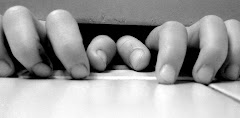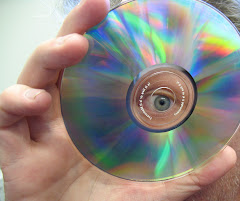 Throughout my adult life, and even preceding that, I have been consumed with the meaning of life. My quest for life's meaning did not preclude me from going bowling or testing how long I can hold my breath under water or enjoying a slice (or nine) of pizza--or doing any manner of thing clearly outside the “quest” box. But what we are to make of life is a question that has not freed me from its grip for any significant stretch of time. Addressing this question has prompted me to adopt various religious positions and philosophical sensibilities throughout my life. It has fueled in me a kind of restlessness evident to anyone who has spent more than, say, ninety seconds with me.
Throughout my adult life, and even preceding that, I have been consumed with the meaning of life. My quest for life's meaning did not preclude me from going bowling or testing how long I can hold my breath under water or enjoying a slice (or nine) of pizza--or doing any manner of thing clearly outside the “quest” box. But what we are to make of life is a question that has not freed me from its grip for any significant stretch of time. Addressing this question has prompted me to adopt various religious positions and philosophical sensibilities throughout my life. It has fueled in me a kind of restlessness evident to anyone who has spent more than, say, ninety seconds with me. Speaking solely for today, not for tomorrow or the next day, my sense is that “what is the meaning of life?” is a very badly put question. Like, what would be better than perfect? Or, how far must one go down an infinitely deep hole to reach the bottom? One may ask these questions, of course, but they are nonsense. Life doesn’t have meaning; certainly it doesn't have meaning like a book or movie, as something valuable because of what it points to or hints at beyond itself. Life’s value isn’t in figuring out its meaning, nor does its value come from the hope that it has an ultimate meaning. Its value emerges in the priceless range of experiences it offers us that come with living fully, with vibrancy, with sensitivity to the lives of others, with truth to oneself.
Above all our task is to actually live life, to experience it, not to figure it out. The rules of life (also called ethics), which I take to be more or less universal and also more or less true, give us excellent direction about cause and effect. If you do action X, Y will follow and Y hurts people. But no set of rules does a damn thing for infusing life with ultimate meaning or, more importantly, for providing life with vibrancy. They are reminders about how our world works.
Finally, life is what it is: a thing to experience, to feel, to appreciate. There is no pointing beyond life for meaning; life itself is the real stuff. Yes, part of the experience of life will inevitably include wonder, including wonder about life's meaning, but wonder is not and cannot be the whole of it. After all, there is fantastic deep dish pizza for the taking!
What is the meaning of love? Is it for something else? Or is it its own reward? Love is its own reward. It is also often its own unique form of anguish. Sometimes it is both simultaneously. After all, we are moved by death only because we care about love. And what is true for love must also surely be true for life, for it is love felt deeply, intensely, and, yes, even irrationally, that makes one eager to greet another day.
Both the head and the heart contribute to our decisions of how to live, but at the end of the day, it is the heart, not the head, that lets us feel life. The poets, not the philosophers, are therefore ultimately our guide—the head must yield to the heart’s deepest convictions so long as the heart is prepared to accept the consequences of its yearnings.
When we draw our last breath, we draw it alone. That sobering thought plainly suggests that, above all, we must be true to ourselves. Not true to an institution. Not to a creed. Not to a job. Not to social expectations. Not to an ideology. Not even to a religious system. To be true to oneself means being true to one’s own heart.








.jpg)




No comments:
Post a Comment